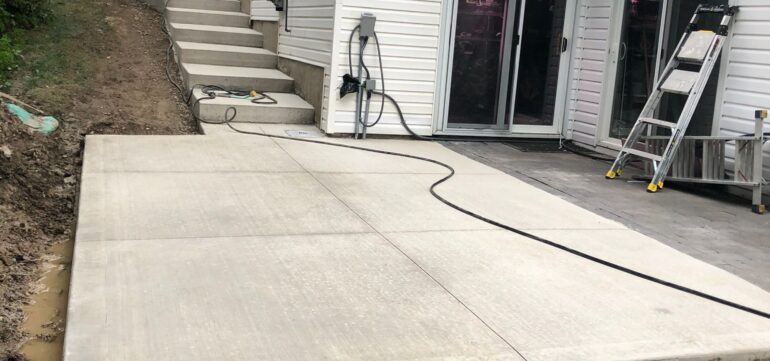
Concrete Patios
Planning and Design
Purpose
Define the primary function of your patio. Will it be used for dining, lounging, or entertaining? The intended use will influence its size, shape, and features.
Location
Choose a location that balances sun and shade, considers privacy, and takes advantage of any desirable views. Proximity to the house is also important for convenience, especially if the patio will be used for dining or entertaining.
Size
The size should be proportional to the space available and the intended use. A patio for dining, for example, should accommodate your table, chairs, and allow for ample movement around the furniture.
Shape
Rectangular patios are common, consider other shapes like circular, L-shaped, or free-form designs to add visual interest or to accommodate specific landscape features.
Style and Finish
Concrete can be finished in various ways to mimic other materials like brick, natural stone, or wood. Textured finishes can add slip resistance. Colors can be integrated into the concrete mix or applied on the surface to complement or contrast with the home’s exterior.
Before starting the project
Check for Permit requirement
Before installing any concrete project, it is good to check with local authorities to determine if any permits are required. Regulations can vary, and compliance is important to avoid legal issues.
Landscaping
Consider landscaping around the project to enhance its visual appeal. Planting greenery along the edges or incorporating decorative elements can complement the overall design.
Maintenance and Care
Sealing
Sealing the concrete periodically helps protect it from stains, moisture penetration, and the effects of weathering. The frequency of sealing depends on factors such as climate and usage.
Expansion Joints
To minimize the risk of cracking, expansion joints should be incorporated into the concrete driveway. These joints allow for natural expansion and contraction of the concrete in response to temperature changes.